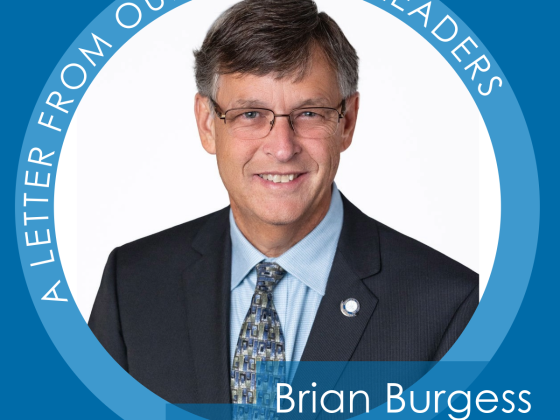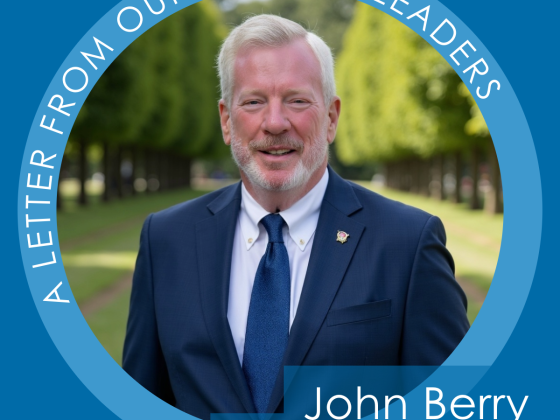This week, millions of mothers are wondering how to feed their children. Government doors are closed, but hunger will not wait.
Allowing the innocent and vulnerable, children, families, people with disabilities, and the poor, to become casualties of an ideological political struggle is an egregious moral failure. The present government shutdown in the United States exposes this immorality with painful clarity, as millions face the immediate threat of hunger, the chill of a cold apartment, and deprivation due to the interruption of lifelines, such as the Supplemental Nutrition Assistance Program (SNAP) and the Low Income Energy Assistance Program (LIHEAP). At the same time, many federal workers face hardship due to the loss of income from being furloughed or having to work without compensation.
This crisis is not a distant tragedy: it is right in front of our face in the look in a mother’s eyes as she worries that her innocent children may soon feel the ache of an empty stomach. Its roots run deep in the decisions of policymakers who have chosen partisan brinkmanship over human dignity, and the consequences demand an urgent moral critique through faith and reason. This is not a partisan failure. Ironically, it’s one of the few times that both sides of the political aisle have managed to do something together – morally fail in their efforts to appeal to their supporters.
When Politics Endangers the Innocent
SNAP (Supplemental Nutrition Assistance Program) is an essential form of help for more than 40 million Americans, and LIHEAP keeps the heat on for millions of people. While the program for Women, Infants and Children (WIC) was funded in October, November funding is still unclear. The loss of funding would threaten nearly 7 million mothers, infants, and young children use rely on the program for food security and basic health.
With the shutdown stretching into November and contingency reserves mired in political refusal, countless families and individuals now face anguish and impossible choices between feeding their children, keeping the lights on, or affording medicine. State governments are scrambling, with some managing to tap emergency funds, but others simply cannot fill the federal vacuum. The stark truth is that politics has weaponized food and safety, holding the most defenseless as hostages for ideological gain.
Biblical Mandate for Justice and Mercy
Scripture, at its heart, proclaims a duty toward the defense of the vulnerable, a duty utterly at odds with policies that inflict suffering to secure political leverage. The prophet Isaiah demands: “Learn to do good; seek justice, rescue the oppressed, defend the orphan, plead for the widow.” (Isaiah 1:17). Isaiah’s command to ‘rescue the oppressed,’ is not only a biblical mandate, it is the fundamental test of our nation’s soul today. Jesus teaches: “Whatever you did for one of these least brothers of mine, you did for me.” (Matthew 25:40). Civil authority in the biblical vision exists not for self-interest, but rather to “…punish those who do evil and promote those who do good.” (Romans 13:3-4).
To turn away from those suffering so they become collateral in a battle over budgetary priorities, is nothing less than a reversal of God’s will for society. Scripture’s recurring theme is this: How nations treat their poor and marginalized is the measure of their true justice and righteousness.
Vincentian Wisdom: Advocacy, Experience, and Action
Blessed Frédéric Ozanam and St. Vincent de Paul both left us a legacy of service intimately bound to justice. Ozanam’s critique remains piercingly relevant: “Charity is the Samaritan who pours oil on the wounds of the traveler who has been attacked. It is justice’s role to prevent the attack.” His insistence was that real social reform begins not in distant legislatures or theoretical debates, but in the living experience of the poor:
“The knowledge of social well-being and reform is to be learned, not from books, nor from the public platform, but in climbing the stairs to the poor man’s garret, sitting by his bedside, feeling the same cold that pierces him, sharing the secret of his lonely heart and troubled mind”.
St. Vincent de Paul’s lifework of advocating for resources to relieve distress, making visible the plight of those society ignores reflects an unwavering “option for the poor,” echoing the call in Matthew 25 to see Christ in those suffering. Their example teaches that even the most well-intentioned charity fails if it does not confront systems, structures, and policies that perpetuate suffering.
The Immorality of Political Hostage-Taking
To persist in a shutdown while millions are deprived of safety net programs is to choose indifference over compassion and abstraction over personal encounter. It is a scandal not merely for the recipients who will be hungry, cold, and frightened, but for a society that claims to value life, justice, and the common good. The poor and vulnerable caught in today’s shutdown are not statistics. Rather they are sacred realities, beloved by God and deserving of dignity. As Vincentians have written in the present crisis:
“Abrupt and devastating policy changes by the U.S. government…threaten human dignity, particularly in the treatment of immigrants and asylum seekers…True discipleship demands an active solidarity with the poor and excluded. This is not merely a moral or religious obligation, but a civic responsibility that aligns with the founding ideals of the United States.” (Statement of the Eastern Province Congregation of the Mission, July 22, 2025)
Justice and Charity: Both Are Required
Catholic tradition does not allow a retreat into mere private charity as substitute for real justice. As I wrote in my Servant Leader column in April of this year: “If we do not use the knowledge and learning we uniquely gain through our personal encounters with the people we serve to help change the causes of poverty, dependence, and need, then we are failing in our duty as Christians”. In other words, our advocacy for policies that protect the vulnerable is just as vital as our daily works of mercy.
Real charity and real justice both require the healing of wounds, the meeting of immediate needs, and the building of systems that don’t allow those wounds to be created in the first place. The knowledge to solve “the formidable problem of misery” comes from persistent accompaniment and attentive listening, not from political abstractions or partisan gamesmanship.
The Human Cost
As November begins, the ramifications of stalled SNAP and WIC programs grow dire. For many families: milk, eggs, and formula for babies are suddenly unavailable. Parents are forced to skip meals so their children can eat. Older adults, sick and isolated, find their groceries may not last till next benefit cycle. Community food banks, stretched past all reasonable limits, cannot come close to replacing lost federal aid. Each headline and statistic are a cry for help; the cry of Lazarus at the gate, ignored by the comfortable.
A Call to Conscience and Concrete Change
For those entrusted with authority, be they legislators, administrators, or citizens, the mandate is clear. Policy debates must never lose sight of the faces and wounds of those who will be most affected. “To serve the poor is to serve Jesus Christ,” St. Vincent said, and that service demands both immediate relief and persistent action to end the causes of suffering.
No government is exempt from the law of justice, nor from judgment when it fails the least among us. Partisan struggle becomes morally intolerable when its cost is paid by the most defenseless. Vincentians, other Christians and all people of conscience must reject the false necessity of such cruelty, insisting instead that every person deserves food security, not fear. The poor deserve our voices, our votes, and our unyielding advocacy.
Conclusion: Building the Kingdom, Not the Contest
In this pivotal moment, the Catholic Church, the Vincentian family, and every advocate for justice must demand an end to politics as hostage-taking and demand the full restoration of every program meant to protect the innocent. This is not optional; it is a Gospel imperative and a test of our nation’s true character. May those with the power to act climb the stairs to the poor’s apartment, encounter the suffering Christ, and choose justice, mercy, and solidarity over ideological victory.
Let us pray and labor “that justice roll down like waters and righteousness like an ever-flowing stream” (Amos 5:24). For where politics fail the innocent, God’s call remains: Act justly, love mercy, and walk humbly with your God. Anything less is far too little, and utterly immoral for a nation that claims to care for its own.
Together, we can build a nation where justice flows. Where no child goes hungry, and every person finds dignity. May our prayers become deeds, and may peace and justice guide our path forward.
Peace and God’s blessings,
John




Hello,
I appreciate the sentiment. The political situation in this country is dire, not only are people going hungry but they also are being kidnapped and terrorized. Even though both parties have failed the average person, there is one party in DC who hold the majority of the power. They are holding subsidies to the Affordable Care Act hostage. Without these subsidies people are going to lose lifesaving healthcare. It is important to note that Dems are holding their ground because they are afraid this admin will simply go back on their word, which they’ve done repeatedly since the beginning of the year.
Two federal judges have ordered the current administration to release emergency funds to SNAP during the shutdown. These are funds set aside for situations just like this, and instead of immediately complying, the admin is dragging its feet “asking for clarification.” The judges orders are clear, fund SNAP with the emergency fund.
While we can lament the failings of both parties, one is markedly worse and causing great harm to the most vulnerable people in the country. How anyone who calls themselves a Christian isn’t absolutely outraged with this admin’s abhorrent behavior is beyond me.
Sources:
https://www.npr.org/2025/10/12/nx-s1-5570849/shutdown-aca-health-care-tax-credits
https://abcnews.go.com/amp/US/judge-rules-trumps-attempt-suspend-snap-funding-unlawful/story?id=127069497
https://www.bbc.com/news/articles/cr433x9zqq4o.amp